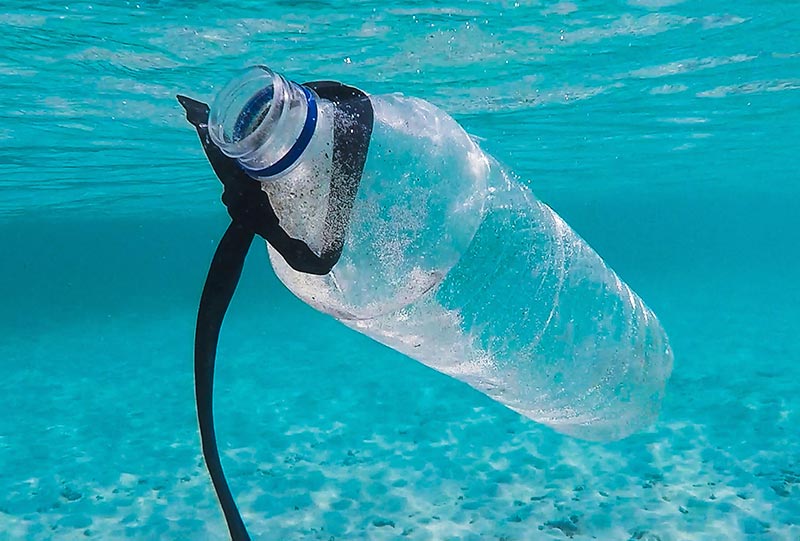Here are a few important waste plastic cleanup schemes aiming to save seas and rivers all over the world
Plastic waste polluting seas and rivers is now a worldwide emergency that needs everyone to take action and commit to the cleanup effort. This is why, in this article, we don’t want to waste time going over just how serious the situation unfolding before us has become. Instead, how about we tell you about some of the most significant projects that aim to collect the plastic waste clogging seas and rivers all over the globe. A message that shows how, even though the road may be long, real results are possible, one step at a time and with the right idea.
- Ocean Cleanup
Essentially a “brush” that collects waste from the sea, a project by a young Dutch student whose objective is to rid the oceans of plastic waste. The innovative mechanical arm, which acts like a fishing net, was deployed in the Bay of San Francisco and aims to clean 50% of the plastic from a mind-boggling 1.6 million square kilometres of ocean over the next five years. The system consists of a 600m-long float with a “skirt” underneath going 3 metres deep designed to “capture” the plastic, which will then be ferried to the mainland for recycling and made into long-lasting products.
- Seabin
This is a “rubbish collector” robot that cleans the sea of debris, designed to filter the water and trap plastics. The first unit was deployed in September in the province of Savona in northern Italy, installed in Varazze marina, thanks to the Lifegate Plastic Less initiative organized in collaboration with Volvo to reduce the amount of plastic debris in the seas around Italy. The plastic collected will then be recycled into other items. Today, we’re pleased to announce that Seabin will soon be deployed in no less than 14 municipalities along the Italian coast!
- Plastic Whale
In Amsterdam, the Plastic Whale project is giving tourists the opportunity to visit the city by boat, at the same time cleaning waste from its waterways. To date, 15,000 people have taken part and, in addition to tourists, schools and local businesses have been jumping on these plastic waste collecting “cruises”. Over the course of the year, almost 3,000 bin bags’ worth of waste have been fished out of the canals and the project looks set to recycle more than 30,000 plastic bottles, which will be given a new life as boats, furniture and homewares.
- Drainage
nets
In Australia, there are drainage nets designed to stop waste being discharged into rivers. The local government of the city of Kwinana, Western Australia, installed the nets at two locations in Henley Reserve in March in an effort to reduce the amount of rubbish discharged from drainage systems within the city. They have collected an impressive 370 kg of debris, more specifically food wrappings, soft drink bottles, sand and tree leaves. The waste was then taken to a sorting centre and separated into recyclable and non-recyclable waste. A further three locations within Henley Reserve have already been identified for installation of the nets by 2020.
- Seads
A startup founded by two young Italian engineers that plans to clean ten of the world’s most polluted waterways. Seads (Sea Defence Solutions) is a sort of curtain made from recycled plastic that sits about one metre deep in the water, acting as a barrier to waste. The most important aspect of this project is its integration with the local populations involved: “Once the plastic reaches the shore, members of the local communities will collect the waste and sell it, as is already the custom, making a profit”, explain the founders. The system will also be trialled in Italy in a tributary of the River Reno.
- The dam on the Po
An experimental dam was installed on the River Po in 2018 to collect plastic waste, stopping it from ending up in the Adriatic Sea and Mediterranean. In just 24 hours, this effective barrier has resulted in the collection of dozens of kilos of laundry detergent bottles, caps, packaging, food wrappers and plastic bottles in general. Named “Po d’Amare”, this is a joint project between Castalia – who operate a fleet of vessels for environmental response missions to protect the sea – the Corepla consortium, the Fondazione Sviluppo Sostenibile foundation for sustainable growth and the Po basin district authority.
- River Cleaning
This is the innovative solution that a group of young guys from Bassano del Grappa (outside Vicenza) came up with to collect pollutant debris from waterways. River Cleaning is a light, modular, self-powered system that has an extremely low environmental impact and can adapt to suit any waterway without requiring a huge amount of money to be poured into it. By exploiting the rotary motion of special floating devices anchored to the river bed and the unique way these devices are arranged across the river, the system can redirect all the floating waste being carried by the water to a single collection point. A great project that’s already caught the attention of businesses internationally.
Stay tuned: we’ll continue to track the progress of these important initiatives and tell you all about them on Are you R!

